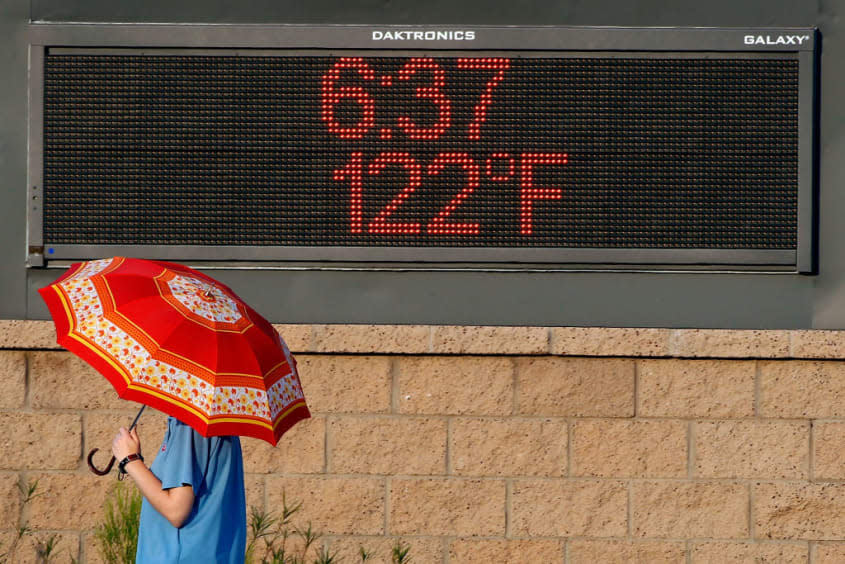When the ocean is 97 degrees

It hit 97 degrees this week in the ocean off South Florida. Not the air temperature — the ocean itself. In steam-bath Miami, the heat index has surpassed 100 degrees for more than 30 straight days. Large swaths of Texas, Nevada and Arizona have been broiling in 110-plus degrees for a week (Phoenix: 118 degrees), with no end to the inferno in sight. In Canada's Northwest Territories — just a few miles south of the Arctic Circle — temperatures climbed to 99.3 degrees. In China, officials are opening underground air-raid shelters so people can hide from life-endangering heat. Climate change's effects are becoming surreal: Last week was the hottest week ever recorded in terms of the average global temperature. July 4 was the hottest day ever recorded — warmer, say scientists, than any other day over the last 125,000 years. With the El Niño climate pattern releasing even more heat in coming months, said climatologist Christopher Hewitt of the World Meteorological Organization, "we are in uncharted territory."
So what do we do? Like the proverbial frog that does not jump out of the slowly heated pot, people really do get used to almost anything, no matter how unpleasant. Just 8% of Americans identify climate change as the most important issue facing the country, a recent poll found. Yet extreme weather events like floods and wildfires that cause more than $1 billion in damage are becoming commonplace, occurring every 18 days now — compared with every 82 days in 1980. The world is finally moving toward solar, wind and renewable energy, but at too slow a pace. This summer's extremes already are exceeding the most pessimistic climate scenarios. As we continue to burn fossil fuels, climatologists warn, the heat will grow even more punishing in coming years, and disasters more frequent. My fellow frogs, have you noticed that the water in this pot is getting awfully warm?
This is the editor's letter in the current issue of The Week magazine.
You may also like
Florida construction and agricultural workforces diminished after new immigration law takes effect
Judge limits how Biden officials can communicate with social media companies
How solar and wind energy are saving Texans from a record heatwave

